APSA Nominating Committee Officers Slate for the 2011–12 Officers and Council Members
After careful consideration of suggestions from the APSA membership and organized groups, the Nominating Committee has agreed on the following slate of political scientists as its nominees for elective office in the association. In developing the final slate of proposed candidates, the committee was guided by the APSA's bylaws that require “due regard to diversity, geographical distribution, fields of professional interest, type of institution, and academic/nonacademic employment status,” as well as by mandates from the APSA Council, the charge from APSA President Carole Pateman, and a commitment to selecting candidates with distinguished records of achievement in advancing the multiple goals of the APSA.
The members of the 2011 Nominating Committee were John Ishiyama, University of North Texas; Walter Mebane, University of Michigan; Kay Lehman Schlozman, Boston College; Mary Shanley, Vassar College (chair); Rogers Smith, University of Pennsylvania; and Susan Woodward, CUNY, Graduate Center.
President-Elect, 2011–12: Jayne Mansbridge, Harvard University
Jane Mansbridge is the Charles F. Adams Professor at the John F. Kennedy School of Government at Harvard University. She holds an MA in history and a Ph.D. in political science from Harvard University, and a BA from Wellesley College. Her research lies at the intersection between democratic theory and empirical social science, with a focus on political inequalities and the democratic processes that can counteract those inequalities. Her first book, Beyond Adversary Democracy, studied deliberation and inequality in two small direct democracies. Her second book, Why We Lost the ERA, co-recipient of the Kammerer award in 1987 and the Victoria Schuck Award in 1988, studied flawed deliberation within a social movement. She also edited Beyond Self-Interest, Feminism (Schools of Thought in Politics series) with Susan Moller Okin, and Oppositional Consciousness with Aldon Morris. Recent articles include “A ‘Selection Model’ of Political Representation,” “Rethinking Representation,” and “The Place of Self-Interest and the Role of Power in Democratic Deliberation” (a deliberative coauthorship with eight colleagues).
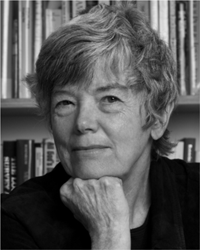
Mansbridge has been active in the Caucus for Women in Political Science, co-founded the Organization of Women Faculty at Northwestern, was a member of the Task Force on Women at Harvard, and was the founding faculty chair of the Women and Public Policy Program at the Harvard Kennedy School.
She has held fellowships from the National Science Foundation, the Rockefeller Humanities Program, and the Institute for Policy Studies, and has been a member of the Institute for Advanced Studies in Princeton, a fellow at the Russell Sage Foundation, a fellow of the Radcliffe Institute at Harvard, and twice a fellow at the Center for Advanced Study in the Behavioral Sciences at Stanford. Other awards include the Radcliffe Graduate Society Medal, the Outstanding Professional Achievement Award from the Midwest Women's Caucus for Political Science, the Jane Mansbridge Scholar-Activist Award established in her honor at Northwestern, and the Women and Public Policy Program's annual Jane Mansbridge Research Paper Award established at the Kennedy School. In 1994, she was elected a member of the American Academy of Arts and Sciences.
Mansbridge was Program Chair of the APSA in 1992–93 during the presidency of Judith Shklar and has also served as Vice-President and a member of the Council and Executive Committee. She has been Vice-President and President of the Caucus for Women in Political Science. She currently serves on the editorial boards of Political Theory, the Journal of Political Philosophy, and the Journal of Politics, among others.
Vice President Nominee, 2011–12: Morris Fiorina, Stanford University
Morris P. Fiorina is the Wendt Family Professor of Political Science at Stanford University and a Senior Fellow of the Hoover Institution. He received a BA from Allegheny College and a Ph.D. from the University of Rochester and taught at the California Institute of Technology and Harvard before Stanford.
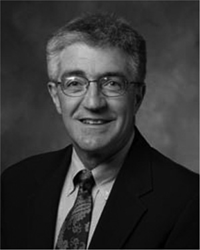
Fiorina has written widely on American government and politics, with special emphasis on topics in the study of representation and electoral accountability. He has published numerous articles and written or edited 10 books, including Congress—Keystone of the Washington Establishment; Retrospective Voting in American National Elections; Divided Government, Culture War? The Myth of a Polarized America (with Samuel Abrams and Jeremy Pope); and Disconnect: The Breakdown of Representation in American Politics (with Samuel Abrams). From 1986–90, Fiorina served as chairman of the Board of Overseers of the American National Election Studies. He is a member of the American Academy of Arts and Sciences and the National Academy of Sciences. In 2006, the Elections, Public Opinion, and Voting Behavior Section of the APSA awarded him the Warren E. Miller Prize for career contributions to the field. Most recently, he was named the 2008 Harold Lasswell Fellow of the American Academy of Political and Social Sciences. At Stanford, Fiorina teaches the introductory course in American politics and various seminars.
Statement of Views: “I believe the Association faces two important challenges, one professional, one practical. The first is to enhance the reputation of the profession as a source of systematic knowledge about politics and government. In a world where partisans of different stripes increasingly have their own facts, it is vital that there be some honest brokers. If not us, who? The second challenge is to help our members (and those to come) adapt to what are likely to be significant changes in higher education in the years to come. Rising costs, plummeting budgets, changes in the economy, technological advances, and other factors are certain to make working in higher education for the next generation of professors very different from ours.”
Vice President Nominee, 2011–12: Kerstin Hamann, University of Central Florida
Kerstin Hamann, professor of political science at the University of Central Florida, received her Ph.D. in political science, an MA in West European studies, and an MA in political science from Washington University in St. Louis. She previously attended Tübingen University, Germany. Hamann is the recipient of UCF's University Excellence in Undergraduate Teaching Award, University Scholarship of Teaching and Learning Awards, and numerous college-wide teaching and research awards.
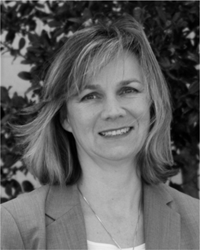
Her research focuses on Spanish politics, comparative political economy (Western Europe), and comparative industrial relations. She has also conducted extensive research in the field of the scholarship of teaching and learning. Her books include The Politics of Industrial Relations: Labor Unions in Spain (2011); Parties, Elections, and Policy Reforms in Western Europe: Voting for Social Pacts (with John Kelly, 2011); Assessment in Political Science (coedited with Michelle Deardorff and John Ishiyama, 2009); and Democracy and Institutional Development: Spain in Comparative Theoretical Perspective (coedited with Bonnie Field, 2008). Her research has also been published in edited volumes and journals, including Comparative Political Studies, the British Journal of Industrial Relations, the European Journal of Industrial Relations, Industrial and Labor Relations Review, Publius, the Journal of Political Science Education, and PS: Political Science & Politics. Hamann's research has been funded by the British Economic and Social Research Council, the Spanish Ministry of Culture, the Spanish Ministry of Science and Innovation, and the Pew Foundation Program in Course Redesign, among others. She serves on the editorial boards of the International Journal of Iberian Studies, the Journal of Political Science Education, and College Teaching.
In service to the Association, Hamann currently chairs APSA's Committee on Teaching and Learning. She has served as vice chair, council member, program co-chair, and best-paper awards committee chair of the Political Science Education section, and she has been actively involved in the Teaching and Learning Conference. She is a co-founder and steering committee member of APSA's Iberian Politics Related Group.
Statement of Views: “I strongly support teaching as a crucially important aspect of the profession that bears significance for society. I am thus particularly concerned with promoting all aspects of teaching and learning at institutions of higher education, including two-year and four-year colleges, as well as graduate institutions. I promote APSA's support of issues related to teaching at diverse institutions and departments, as well as APSA's continuing development and support of a broad notion of teaching as part of the profession.”
Vice President Nominee, 2011–12: Niraja Gopal Jayal, Jawaharlal Nehru University, New Delhi
Niraja G. Jayal is a professor at the Centre for the Study of Law and Governance at Jawaharlal Nehru University, New Delhi. She served as chair of the Centre (2002–04 and 2008–09) and as director of the Jawaharlal Nehru Institute of Advanced Study (2004–07). She is the author of Representing India: Ethnic Diversity and the Governance of Public Institutions (Palgrave Macmillan, 2006) and Democracy and the State: Welfare, Secularism and Development in Contemporary India (Oxford University Press, 1999); and editor or coeditor of several volumes, including The Oxford Companion to Politics in India (2010); Democracy in India (Oxford University Press, 2001); and Local Governance in India: Decentralization and Beyond (Oxford University Press, 2005). Her current book project is about contestations over ideas of citizenship in India across the twentieth century. As with her previous work, this is also located at the intersection of the normative and the empirical.
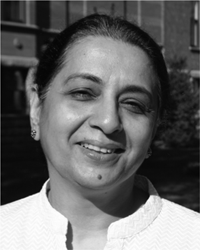
In 2009, she delivered the Radhakrishnan Memorial Lectures at All Souls College, Oxford. She was Visiting Fellow in Democracy and Development at Princeton University (2009–10). She has held a Senior Fellowship of the Nehru Memorial Museum and Library, Delhi, and visiting fellowships at, among others, the University of Melbourne and the Maison des Sciences de l'Homme, Paris. She directed a project on “Democracy and Pluralism in South Asia,” funded by the Ford Foundation, as well as an all-India survey of women's participation in institutions of local governance. She has been a consultant to the United Nations Development Programme, the Ford Foundation, the World Bank, and the UK Department for International Development.
Statement of Views: “I interpret my nomination as a signal of APSA's commitment to strengthen its international program and create opportunities for meaningful engagement between political scientists in America and elsewhere. As someone who participated in the APSA–India project—led by Ira Katznelson and Partha Chatterjee, comparing American and Indian democracy through a Tocquevillian lens—I believe this is an important objective. I would be happy to help advance it through exploring opportunities for collaborative academic initiatives.
“I am committed to methodological pluralism and have a particular interest in dialogue between the concerns of normative political theory and the empirical study of national or comparative politics.
“I have advised several American graduate students in India and believe that facilitating transnational professional and mentoring relationships can be a useful aspect of APSA's international outreach.”
Treasurer Nominee, 2011–13: Jonathan Benjamin-Alvarado, University of Nebraska Omaha
Jonathan Benjamin-Alvarado is a professor of political science at the University of Nebraska Omaha (UNO). His main areas of research are energy and trade policy in Latin America and comparative democratization. He received his Ph.D. from the University of Georgia (1998). He is the author of Power to the People: Energy and the Cuban Nuclear Program (2001) and Cuba's Energy Future: Strategic Approaches to Cooperation (2010). His papers have been published in, among other places, the Political Science Quarterly, the Nonproliferation Review, and Urban Affairs Review. He is director of the Intelligence Community Scholars Program at UNO and was the founding assistant director of the Office of Latino/Latino American Studies at UNO. He served on the APSA Council (2008–10) and is the former president of the Latino Caucus of the APSA. He has been a consultant to the U.S. government and numerous private policy, research, corporate, and philanthropic organizations.
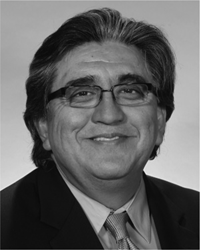
Statement of Views: “From my past service on the APSA Council, I have come away with a deep appreciation of the necessity of providing members of the Association with financial reporting that is transparent and accessible. The Association has made significant inroads in the past three years in addressing these and other relevant objectives. As APSA Treasurer, I hope to continue advancing this progress and will work diligently with the staff professionals to ensure all fiduciary, accounting, and legal requirements of the Association are satisfied promptly and responsibly.
“My formal training is in energy and trade policy and regime transition. In my own research, I have tried to combine qualitative methods with formal modeling and quantitative analysis that produces policy-relevant research that not only advances the literature of the discipline, but also brings value and understanding to important policy discussions.”
Secretary Nominee, 2011–12: Lisa Martin, University of Wisconsin–Madison
Lisa L. Martin is a professor of political science and the Glenn B. and Leone Orr Hawkins Faculty Fellow at the University of Wisconsin–Madison. She is the author of Democratic Commitments: Legislatures and International Cooperation (Princeton University Press, 2000) and Coercive Cooperation: Explaining Multilateral Economic Sanctions (Princeton University Press, 1992). Her journal publications have focused on the role of institutions in international politics, considering how international institutions are both the object of state choice and have consequences for patterns of cooperation among states. Her work uses multiple methods, combining case-study, quantitative, and formal analysis. She is currently chair of the APSA Publications Committee and was co-chair of the APSA Program Committee in 2010. She served as editor-in-chief of International Organization from 2002 to 2006 and currently serves on numerous editorial boards and prize committees.
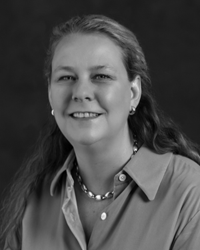
Statement of Views: “I am honored to be nominated to serve APSA as Secretary of the Council. If elected, I will represent the diversity of perspectives and experiences in the discipline of political science. Having held positions in both private and public universities, I am especially aware of the unique challenges facing faculty in these different settings, and I intend to bring this variety of experiences to my work on the Council. I look forward to the opportunity to further work with the APSA membership in this capacity.”
Council Nominee, 2011–13: Charles Gossett, California State University, Sacramento
Charles Gossett is a professor of government and a professor of public policy and administration at California State University, Sacramento. He is currently serving as Dean of the College of Social Sciences and Interdisciplinary Studies. He is a graduate of Hope College (BA) and Stanford University (MA and Ph.D.). He has also taught at Georgia Southern University and California State Polytechnic University, Pomona, where he served as chair of the political science department. His teaching and research interests are wide-ranging. He continues to publish articles and book chapters on various topics in public personnel management; African politics and administration; and gay, lesbian, bisexual, and transgendered politics. He served twice as a Fulbright Fellow, once at the University of Swaziland and most recently at the University of Botswana's Center for the Study of HIV and AIDS. He is a former Executive Council member of the National Association of Schools of Public Affairs and Administration. Within APSA, he has served as chair of the Committee on the Status of Lesbians, Gays, Bisexuals, and the Transgendered in the Profession; chair of the Section on Public Administration; and on other committees such as the Gaus Award Committee and the Leonard D. White Best Dissertation Committee.
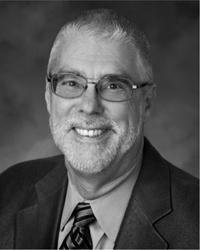
Statement of Views: “The challenges facing undergraduate education, particularly in political science, are some of the most important facing the profession currently and in the foreseeable future. The association should advocate strongly for the place of political science in the university curriculum as campuses begin to curtail their degree offerings in favor of programs that are perceived as leading more directly to employment. We also need to be advocates for our students and federal and state support they rely on, whether through programs like Pell Grants or more specialized graduate fellowship programs. Likewise, support for research by scholars in the field needs to be defended. With respect to the Association itself, I would see the need to ensure that a sound financial base is maintained and that we develop and consistently implement a conference site selection policy that reflects the fundamental principles that the organization has adopted.”
Council Nominee, 2011–13: Paul Gronke, Reed College
Paul Gronke (Ph.D. University of Michigan 1993, MA University of Essex 1984, BA University of Chicago 1982) is a professor of political science at Reed College, director of the Early Voting Information Center (http://earlyvoting.net), and coeditor of the Election Law Journal. He has published more than two dozen peer-reviewed articles, book chapters, and a book: The Electorate, the Campaign, and the Vote (University of Michigan Press, 2000). He has contributed to policy reports for the Pew Center on the States, the Election Assistance Commission, and the states of Oregon and Maryland. Gronke's academic interests include elections, election administration, public opinion, Congress, and research methods.

Gronke has served as department chair for seven years and has been on Reed's campuswide planning committee and the Dean's Search committee. He sat on APSA's Trust and Development Committee and the Western Executive Council, served as Communications Director for the Elections, Public Opinion, and Voting Behavior Section of APSA, and was section head for the Southern and Western meetings.
Gronke lives in Portland, Oregon, with his four children, dog, and two frogs; enjoys the Portland dining and pub scene; and tries to run as much as his aging knees allow.
Statement of Views: “I am a behavioralist by training, an institutionalist by inclination, but mostly a pragmatist. My major intellectual influences include a political psychologist (Kinder), an institutionalist (Aldrich), two voting scholars (Rosenstone and Converse), and two parties scholars (Eldersveld and Sarlvik). Each brought a pragmatic and multidisciplinary approach to their work, and I would bring the same to the APSA Council. As my dear friend Tim Cook once put it, I am a ‘Missourian.’ Like those in the Show-Me State, I am skeptical of claims unless supported by evidence.
“My own view of the profession is that the methodological contestation in the last two decades, while difficult at times, has improved both qualitative and quantitative research. We have divisions, but these are inevitable in a discipline as broad and inclusive as ours.
“In terms of specific issues I am interested in: (1) enhancing official relationships with law, public policy, and public administration as a way to improve our reach and relevance; (2) evaluating graduate training and mentoring, paying close attention to preparation for non–research intensive careers, which characterize most of our membership; and (3), one parochial concern, examining regional rotations of conferences and conference schedules to better accommodate scholars traveling from the western regions.”
Council Nominee, 2011–13: Ange-Marie Hancock, University of Southern California
Ange-Marie Hancock received her Ph.D. in 2000 (UNC–Chapel Hill). An Irvine Dissertation Fellowship brought her to the University of San Francisco; she later taught at Penn State and Yale before joining the University of Southern California in 2008. She is an associate professor of political science and gender studies.
Hancock is an internationally recognized scholar of intersectionality. Her first book, The Politics of Disgust and the Public Identity of the “Welfare Queen” (2004), won the W. E. B. Du Bois Best Book Award (NCOBPS) and Best First Book Award (Race, Ethnicity and Politics Section of the APSA). Her 2007 article, “When Multiplication Doesn't Equal Quick Addition” remains the most cited article published in Perspectives on Politics. She has published several articles and chapters; most recently, she coedited an intersectionality mini-symposium in Political Research Quarterly. Her next book is Solidarity Politics for Millennials: A Guide to Ending the Oppression Olympics (August 2011).
Hancock teaches courses on American politics and political theory. She has received multiple teaching awards and nominations: two UNC awards for Outstanding Undergraduate Teaching and an Outstanding Faculty award at USF. She was also nominated for the Yale College Teaching Award.
Hancock's disciplinary service includes terms on the Journal of Politics and Peace Review editorial boards and as a reviewer for the American Political Science Review, the Journal of Politics, Perspectives on Politics, and Political Research Quarterly. She is also part of the lead editorial collective for the new WPSA journal, Politics, Groups and Identities. At USC, she is a member of the Gender Studies Advisory Board and associate director of the Center for the Study of Immigrant Integration.
Statement of Views: “If elected, I will work towards the following goals, derived from my 15 years in the discipline: institutionalization of the APSA Conference Siting committee's recommendations fairly and creatively to build solidarity among APSA members from multiple constituencies rather than drive them apart; finding creative opportunities for political scientists to serve the communities that matter to them in each city where the APSA meeting is held; promoting substantive and methodological pluralism; and instituting electoral reform to ensure competitive elections and diverse candidate slates.
“For APSA, I have served as a member of the TLC planning committee, a fellowship award committee, two organized section executive committees; chair of a book award committee; and co-program chair for the Race, Ethnicity and Politics organized section. I have also been Women's Caucus chair and a member of the executive council of the WPSA. I look forward to the opportunity to serve and shape the APSA for the twenty-first century.”
Council Nominee, 2011–13: David Lake, University of California, San Diego
David A. Lake is the Jerri-Ann and Gary E. Jacobs Professor of Social Sciences, Distinguished Professor of Political Science, and Acting Dean of Social Sciences (2011–12) at the University of California, San Diego. He is the author of Hierarchy in International Relations (2009), as well as Power, Protection, and Free Trade: International Sources of U.S. Commercial Strategy, 1887–1939 (1988); Entangling Relations: American Foreign Policy in its Century (1999); and World Politics: Interests, Interactions, and Institutions (2010). In addition to numerous articles and chapters, he is the coeditor of 10 volumes, including, most recently, The Credibility of Transnational NGOs: When Virtue is Not Enough (forthcoming 2012) and Politics in the New Hard Times: The Great Recession in Comparative Perspective (forthcoming). Lake has served as Research Director at the Institute on Global Conflict and Cooperation, coeditor of the journal International Organization, chair of UCSD's political science department, and Associate Dean of Social Sciences at UCSD. He is the founding chair of the International Political Economy Society and the immediate past president of the International Studies Association. The recipient of the UCSD Chancellor's Associates Award for Excellence in Graduate Education, he was elected to the American Academy of Arts and Sciences in 2006 and was a fellow at the Center for Advanced Study in the Behavioral Sciences in 2008–09. He received his Ph.D. from Cornell University in 1984 and taught at UCLA from 1983 to 1992.
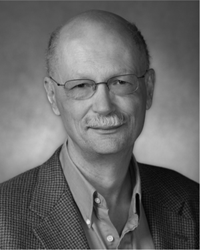
Statement of Views: “As our preeminent professional association, the APSA through its Annual Meeting and journals is the central forum for scholarly interaction and debate in the discipline of political science. The APSA has been central to my own intellectual development; as a life member, I have attended every convention since 1983. In turn, I have tried to give back to the organization as founding chair of the section on Political Economy (1990–92), as program co-chair (2007), and as a member of the Trust and Development committee (2009–11). I would be honored to serve on the council, if elected. I am committed to (a) fostering an open and inclusive environment within the association; (b) expanding opportunities for participation in the Annual Meeting; and (c) enhancing professional development programs for graduate students, junior faculty, and others just entering the profession.”
Council Nominee, 2011–13: Taeku Lee, University of California, Berkeley
Taeku Lee is a professor and chair of political science and a professor of law at UC–Berkeley. His primary teaching and research areas are in racial/ethnic politics, public opinion and survey research methods, political participation, and social movements. He is the author of Mobilizing Public Opinion (University of Chicago Press, 2002), which received the J. David Greenstone and the V.O. Key book awards; coauthor of Why Americans Don't Join the Party (Princeton University Press, 2011); and coauthor of Asian American Political Participation (Russell Sage, forthcoming). He has also coedited two volumes, Transforming Politics, Transforming America (University of Virginia Press, 2006) and Accountability through Public Opinion (World Bank Press, 2011) and is currently coediting the Oxford Handbook of Racial and Ethnic Politics in the United States (Oxford University Press).
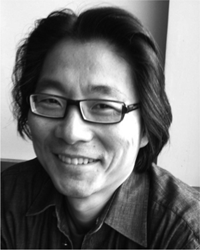
Lee's prior service to the APSA includes book award committees, the Race, Ethnicity and Politics Section Executive Council, the Committee on the Status of Asian Pacific Americans, and the Task Force on Political Science in the 21st Century. Lee also sits on several editorial boards (including the American Political Science Review), is a member of the American National Election Studies Board, and works in advisory and consultative capacities for community-based organizations, international organizations, think tanks, and multinational corporations. Prior to coming to Berkeley, he was assistant professor at Harvard's Kennedy School. Lee was born in South Korea; grew up in rural Malaysia, Manhattan, and suburban Detroit; and is a proud graduate of K–12 public schools, the University of Michigan (AB), Harvard University (MPP), and the University of Chicago (Ph.D.).
Statement of Views: “If fortunate enough to be elected, I would vigorously champion three goals for the APSA: professionalism, pluralism, and pragmatism.
“Professionalism: In these hard times of shrinking resources and campuses that consider fundamentally reorganizing the work of the professoriate, the APSA's central mission as a professional association that safeguards the interests of its membership and advances the disciplinary ends of teaching, research, and outreach has never been more critical.
“Pluralism: Excellence and inquiry are best achieved through the spirited promotion of a diversity of methodologies, theoretical standpoints, and social groups representing political science. The APSA has a special duty to advocate for this plural vision of our disciplinary good.
“Pragmatism: The durability and verity of our theories and discoveries in political science are only as good as its successful practical application to politics on the ground. The APSA also has a pivotal role to play in promoting research and teaching that engages concrete problems, contributes to policymaking, and illuminates political discourse.”
Council Nominee, 2011–13: Uday Singh Mehta, The Graduate Center, City University of New York
Uday Singh Mehta, Distinguished Professor of Political Science at the Graduate Center, is a political theorist whose work encompasses a wide spectrum of philosophical traditions. He has worked on the relationship between freedom and imagination, liberalism's complex link with colonialism and empire, and, more recently, on issues of war, peace, and nonviolence. He is the author of two books, The Anxiety of Freedom: Imagination and Individuality in the Political Thought of John Locke (Cornell University Press, 1992) and Liberalism and Empire: Nineteenth Century British Liberal Thought (University of Chicago Press, 1999). In 2002, he was named a Carnegie Foundation Scholar. He is currently completing a book on war, peace, and nonviolence, which focuses on the moral and political thought of M. K. Gandhi. He studied mathematics and philosophy as an undergraduate at Swarthmore College and received his Ph.D. in political philosophy from Princeton University.
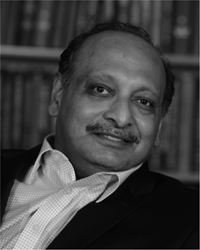
Council Nominee, 2011–13: Kenneth Meier, Texas A&M University
Kenneth J. Meier is a Distinguished Professor of Political Science and holder of the Charles H. Gregory Chair in Liberal Arts at Texas A&M University, where he also directs the Project for Equity, Representation and Governance and the Carlos H. Cantu Hispanic Education and Opportunity Endowment. He is also a professor of public management at the Cardiff University School of Business, Cardiff University (U.K.).
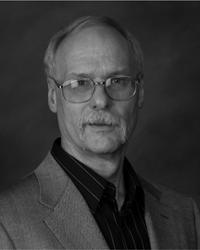
Meier is a scholar of public administration and public policy who examines issues of equity, particularly in regard to race, ethnicity, gender, and class. His approach is interdisciplinary in orientation, applying a variety of social science techniques to questions of normative importance. His recent books include Public Management: Organizations, Governance and Performance (Cambridge University Press, with Larry O'Toole) and The Wit and Humor of Political Science (APSA, with Lee Sigelman, Bernie Grofman, and Ken Newton). He edited the American Journal of Political Science and is currently editor-in-chief of the Journal of Public Administration Research and Theory. He has served as president of the Midwest Political Science Association, the Southwest Political Science Association, and the Public Management Research Association. He is a member of the National Academy of Public Administration. His career research contributions have been recognized by the John Gaus Award from the APSA and the C. Dwight Waldo Award from the American Society for Public Administration.
For the APSA, Meier's service includes chairing three different APSA sections (Public Administration, Public Policy, and State Politics and Policy) and membership on the John Gaus Award Committee, the Leonard White Award Committee, the Gladys Kammerer Award Committee, the Paul Volcker Junior Scholar Award Committee, the Herbert Kaufman Award Committee, the Minority Program Review Implementation Committee, the Aaron Wildavsky Award Committee, and the APSA Program Committee.
Statement of Views: “My issues on the Council are diversity and broadening the scope of political science. In terms of diversity, I think more effort needs to be placed on the pipeline of undergraduate students who seek graduate degrees. I would like to see an APSA-endorsed speakers network that might be used to encourage more women and individuals of color to consider a career in political science. I generally view the scope of political science as too narrow and think that a wide variety of political issues are not studied by political scientists. I would encourage greater interaction with scholars from other disciplines.”
Council Nominee, 2011–13: Kathleen Thelen, Massachusetts Institute of Technology
Kathleen Thelen is Ford Professor of Political Science at MIT. She received her BA from the University of Kansas and her Ph.D. from the University of California, Berkeley. Her empirical research focuses on the political economy of the rich democracies, and she has also made contributions to the literature on historical institutionalism. She is the author, most recently, of How Institutions Evolve: The Political Economy of Skills in Germany, Britain, the United States and Japan (Cambridge University Press, 2004; co-winner of the APSA Woodrow Wilson Foundation Award and winner of the Mattei Dogan Award of the Society for Comparative Research) and coeditor of two volumes on institutional change, Explaining Institutional Change: Ambiguity, Agency and Power (Cambridge University Press, 2010, with James Mahoney) and Beyond Continuity: Institutional Change in Advanced Political Economies (Oxford University Press, 2005, with Wolfgang Streeck).

Thelen has strong connections abroad, particularly in Europe. She is a Permanent External Scientific Member of the Max Planck Institute for the Study of Societies (Cologne, Germany), and has also held appointments as a research fellow or visiting professor at Nuffield College (Oxford), Sciences Po (Paris), and the Copenhagen Business School. She was chair of the Council for European Studies (2002–06) and president of the Society for the Advancement of Socio-Economics (2008–09). Her past contributions to the APSA include service as an officer in several organized sections (Comparative Politics, Politics and History, Qualitative Methods, and European Politics and Society).
Statement of Views: “I am honored to be nominated for the Council, and it would be a privilege to serve. If elected, my efforts on the Council would be guided by the following goals.
“First, I am committed to promoting methodological pluralism in our research community and would work to make sure that our association reflects and nurtures the variety of approaches and perspectives that characterize our discipline. Second, I think the Association should work harder to promote diversity within our profession, searching for ways to enhance opportunities for women and minorities to flourish and thrive. Third, I am dedicated to teaching and mentoring and would strive to ensure that these activities are sufficiently recognized and rewarded. And finally, I would hope to bring my experience with international institutions and multidisciplinary associations to bear in order to encourage APSA initiatives that foster cross-national and interdisciplinary dialogue.”
Continuing Council Members
COUNCIL MEMBER, 2010–12: Jeffrey Berry, Tufts University
Jeffrey M. Berry is the John Richard Skuse Professor of Political Science at Tufts University. He received his AB from the University of California, Berkeley, and his Ph.D. from the Johns Hopkins University.
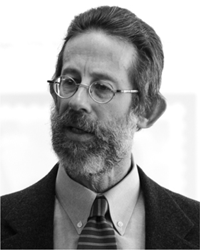
Berry's research focuses on interest groups, citizen advocacy, urban politics, and nonprofits. The central theme that runs through his scholarship is a concern with how ordinary citizens get their collective voice heard by those in government. His books include Lobbying for the People: The Political Behavior of Public Interest Groups (Princeton University Press, 1977), The Rebirth of Urban Democracy (with Kent E. Portney and Ken Thomson; Brookings Institution Press, 1993), The New Liberalism: The Rising Power of Citizen Groups (Brookings Institution Press, 2000), A Voice for Nonprofits (Brookings Institution Press, 2005), and Lobbying and Policy Change: Who Wins, Who Loses, and Why (with Frank R. Baumgartner, Marie Hojnacki, David C. Kimball, and Beth L. Leech; University of Chicago Press, 2009). Among his awards are APSA's Gladys Kammerer Award and the Urban Politics section's best book award for The Rebirth of Urban Democracy, the Policy Studies Organization's Aaron Wildavsky Award for The New Liberalism, and APSA's Political Organizations and Parties section's Leon Epstein Prize and its Samuel Eldersveld Career Achievement Award for A Voice for Nonprofits.
Berry's current research involves a study of environmental advocacy and sustainability in 50 large American cities (with Kent Portney), and a study of the “Outrage Industry” (talk radio, cable TV, blogs, and ideological citizen groups, with Sarah Sobieraj). His service to APSA includes membership on the Professional Ethics and Academic Freedom Committee and the Civic Education and Engagement Committee (which wrote Democracy at Risk). He also served as president of the Political Organizations and Parties section.
COUNCIL MEMBER, 2010–12: Michael C. Desch, University of Notre Dame
Michael C. Desch is a scholar of international relations and security studies at the University of Notre Dame, where he is chair of the department of political science and a fellow of the Joan B. Kroc Institute for International Peace Studies.
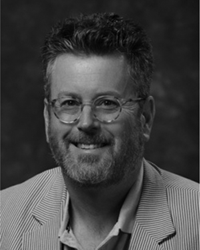
Desch has authored three books: When the Third World Matters: Latin America and U.S. Grand Strategy (1993), Civilian Control of the Military (1999), and Power and Military Effectiveness: The Fallacy of Democratic Triumphalism (2008). He also edited Soldiers in Cities (2001) and coedited From Pirates to Drug Lords (1998, with Jorge Dominguez and Andres Serbin). His articles have appeared in Foreign Affairs, International Security, Armed Forces and Society, and International Organization, among other journals.
In the APSA, he has served on the Annual Meeting Committee, chaired the International Security section, and currently chairs the Foreign Policy section. He has served as chief editor of the journal Security Studies and as a member of the editorial boards of International Security, Perspectives on Politics, and the International Studies Quarterly.
COUNCIL MEMBER, 2010–12: Christopher Gelpi, Duke University
Christopher F. Gelpi (Ph.D., University of Michigan, 1994) is a professor of political science at Duke University. His primary research interests are the sources of international militarized conflict, strategies for international conflict resolution, and the sources of public attitudes toward foreign policy issues. He is currently engaged in research on American public opinion and the use of military force, as well as on statistical models for forecasting military conflict and transnational terrorist violence. He has published works on American civil–military relations and the use of force, the impact of democracy and trade on international conflict, the role of norms in crisis bargaining, alliances as instruments of control, diversionary wars, deterrence theory, and the influence of the international system on the outbreak of violence. He is author of The Power of Legitimacy: The Role of Norms in Crisis Bargaining (Princeton University Press, 2002), coauthor (with Peter D. Feaver) of Choosing Your Battles: American Civil-Military Relations and the Use of Force (Princeton University Press, 2004), and coauthor (with Peter Feaver and Jason Reifler) of Paying the Human Costs of War: American Public Opinion and Casualties in Military Conflicts (Princeton University Press, 2009). Some of his other works have appeared in the American Political Science Review, International Security, International Organization, Journal of Conflict Resolution, Journal of Peace Research, Political Behavior, Political Science Quarterly, and Public Opinion Quarterly.
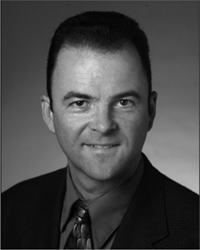
COUNCIL MEMBER, 2010–12: Simon Hix, London School of Economics
Simon Hix is a professor of European and comparative politics at the London School of Economics and Political Science. He received his Ph.D. from the European University Institute in Florence in 1995. He has written several books, including The Political System of the European Union (Palgrave, 2005, second edition), Democratic Politics in the European Parliament (with Abdul Noury and Gerard Roland; Cambridge University Press, 2007), and What's Wrong with the European Union and How to Fix It (Polity, 2008). His papers have been published in journals such as the American Journal of Political Science, British Journal of Political Science, Journal of Politics, Philosophical Transactions of the Royal Society, World Politics, Comparative Political Studies, European Journal of Political Research, Legislative Studies Quarterly, Japanese Journal of Political Science, and Journal of Common Market Studies. He is director of the Political Science and Political Economy Research Group at the LSE, associate editor of the Journal of European Union Politics, and a member of the editorial boards of the Journal of Politics, British Journal of Political Science, Political Analysis, and Legislative Studies Quarterly. He has won two prizes from APSA: the Lawrence Longley Prize for the best article on representation and electoral systems published in 2004, and the Richard F. Fenno Jr. Prize for the best book on legislative politics in 2007. In 2004, he won a Distinguished Scholar Award from the U.S.–U.K. Fulbright Commission, and in 2000, he won the Bernard Crick Prize for outstanding teaching from the British Political Studies Association. He has held visiting positions at a variety of institutions, including Berkeley, Stanford University, the University of California, San Diego, Sciences-Po in Paris, the Hertie School of Governance in Berlin, the College of Europe in Bruges, and the Korean Institute for International Economic Policy. He has been a consultant to the British government, the European Parliament, the Asian Development Bank, and numerous private organizations.
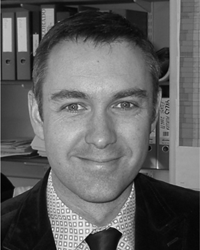
COUNCIL NOMINEE, 2010–12: Mala Htun, New School for Social Research
Mala Htun is an associate professor of political science at the New School for Social Research and Eugene Lang College. Her scholarly work explores the question of when and why states grant liberal rights and otherwise promote the interests of historically oppressed groups such as women and ethnic and racial minorities. She teaches courses on comparative politics, gender and politics, and Latin American politics.

She is the author of one book, Sex and the State: Abortion, Divorce, and the Family Under Latin American Dictatorships and Democracies (Cambridge University Press, 2003) and was almost finished with the second, Sex, Race, and Representation, (Cambridge University Press, forthcoming) when she got married and produced two children. When not changing diapers or picking up toys, she works on what will be her third book. A collaboration with Laurel Weldon, this National Science Foundation–funded project explores women's rights and gender equality policies through comparative analysis of 71 countries.
Htun won the Heinz Eulau award from the APSA in 2005 for her article, “Is Gender Like Ethnicity? The Political Representation of Identity Groups.” She has been a fellow of the Radcliffe Institute of Harvard, the Kellogg Institute of the University of Notre Dame, and the Council on Foreign Relations International Affairs Fellowship in Japan. She holds a Ph.D. from Harvard and an AB from Stanford.
COUNCIL MEMBER, 2010–12: Anne Norton, University of Pennsylvania
Anne Norton has taught and published in political theory, American politics, and comparative politics. She has taught at both public and private institutions. Norton was educated at the University of Chicago, where she studied political science through college and graduate school. She was a Fellow at the Pembroke Center for Teaching and Research on Women and then taught at the University of Chicago, Notre Dame, Princeton, the University of Texas at Austin, and (since 1993) the University of Pennsylvania. She is the author of Alternative Americas: A Reading of Antebellum Political Culture; Reflections on Political Identity; Republic of Signs: Liberal Theory and American Popular Culture; Bloodrites of the Poststructuralists: Word, Flesh and Revolution; 95 Theses on Politics, Culture and Method; and Leo Strauss and the Politics of American Empire.
COUNCIL MEMBER, 2010–12: Laura Katz Olson, Lehigh University
Laura Katz Olson has been a professor of political science at Lehigh University since 1974 and was chair of the department from 2003 to 2007. She has published eight books: The Politics of Medicaid; The Political Economy of Aging; Aging and Public Policy; The Graying of the World; Age Through Ethnic Lenses; The Not So Golden Year; The Handbook of Long-Term Care Administration and Policy (coedited); and Heart Sounds (her first novel). She also has published over 35 articles and book chapters in the field of aging, health care and women's studies, addressing such topics as pensions, Social Security, problems of older women, Medicaid, and long-term care. Olson has been a Scholar at the Social Security Administration, a Gerontological Fellow, and a Fulbright Scholar. She is on the editorial boards of the Journal of Aging Studies and New Political Science.
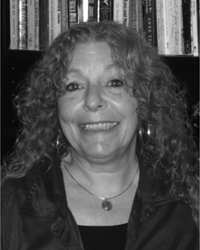
Olson also has been appointed to a number of APSA committees, including the Committee on Departmental Services, the Victoria Schuck Award Committee (as chair), and the Alice Paul Award Committee for the Women's Caucus, and she will organize the New Political Science (NPS) Section program panels for next year. In 2009, she received the Charles A. McCoy Career Achievement Award from NPS.
COUNCIL MEMBER, 2010–12: Dara Strolovitch, University of Minnesota, Twin Cities
Dara Strolovitch is an associate professor of political science at the University of Minnesota. She received her BA from Vassar College and her Ph.D. from Yale University. Her teaching and research focus on interest groups and social movements; representation; and the intersecting politics of race, class, gender, and sexuality in the United States. Her 2007 book, Affirmative Advocacy: Race, Class, and Gender in Interest Group Politics (University of Chicago Press, 2007), won the APSA's Kammerer Award, the Political Organizations and Parties section's Epstein Award, the American Sociological Association's Race, Gender, and Class section's Distinguished Contribution to Scholarship Award, and the Association for Research on Nonprofits and Voluntary Action/Independent Sector's Hodgkinson Prize. Her work has also appeared in several edited volumes and in journals including the Journal of Politics, American Journal of Sociology, National Women's Studies Association Journal, Social Science Quarterly, and the Du Bois Review. She has held fellowships at the Brookings Institution and Georgetown University, and she has received grants from sources including the National Science Foundation and the Social Sciences and Humanities Research Council of Canada. With Burdett Loomis and Peter Francia, she is currently co-editing the CQ Guide to Interest Groups and Lobbying. Her current research examines the effects of rhetorics of crisis and catastrophe on advocacy organizations.
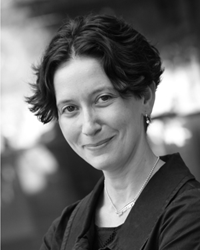
Dara has served as program co-chair for APSA's Race and Ethnic Politics section (2010), as chair of the MPSA's Committee on Nominations (2010), and as a member of the APSA's LGBT Status Committee. She has also served on the MPSA's Breckenridge Award committee, the Political Organizations and Parties section's Epstein Award committee, and the Qualitative and Multi-Method Research section's George Award committee. She serves on the Perspectives on Politics editorial board and served previously on the board of the Journal of Politics.


